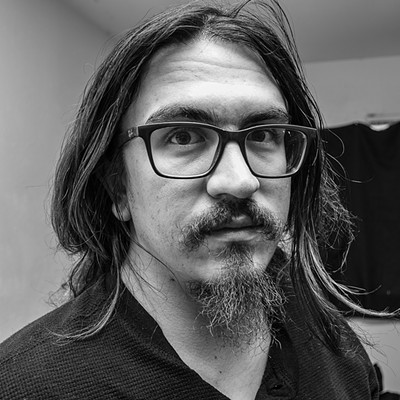A thick layer of vapor settles over the main hall of Dallas Market Center as consumers and vendors take their seats Aug. 19 for the advocacy program at the 2016 Vape Showcase. The panel includes representatives from consumer and trade vape advocacy groups as well as longtime anti-smoking crusader and former Winston man, David Goerlitz, but new U.S. Food and Drug Administration regulations cast a dark cloud over the event.
E-cigarettes, first invented in 2003 by Chinese pharmacist Hon Lik, vaporize a liquid containing nicotine. They have become popular worldwide due to claims that they contain fewer harmful chemicals than tobacco. According to a report by the Centers for Disease Control and Prevention (CDC), by 2014, 12.6 percent of American adults had used an e-cigarette at least once. A Yelp search for vape shops in Dallas alone turns up 259 results.
But new regulations have put a hold on new products by labeling e-cigarettes (or electronic nicotine delivery systems) and their components as tobacco products and requiring mom-and-pop vape shops all over DFW to register as tobacco product manufacturers.
Vape shops can no longer offer free samples, assist in troubleshooting devices (including proper battery installation) or speak to any possible health benefits of vaping over smoking, despite recent recommendations from the U.K.’s Royal College of Physicians that smokers switch to e-cigarettes.
What used to be customer service is now a crime, Kenny and Sarah Brattain, who co-own Mod Squad Vape Shop in Lewisville, say. “There’s areas of this industry that need regulation and there’s areas that don’t. I mean, for us to sell [a customer] a new mod and to not be able to set it up for her and educate her on how to maintain it … that’s irresponsible,” Sarah adds.
Shops will also be required to submit premarket tobacco applications (PMTA) for every flavor of e-liquid at every nicotine level and every size. It's rumored that the cost to shops will be $300,000 to $1 million for each product by Aug. 8, 2018. For local shops like Mod Squad, which would have to apply for 16,272 PMTAs to continue operating as it does now, complying with those regulations is impossible.
Schell Hammel, board vice president of the Smoke Free Alternatives Trade Association, speaks up at the advocacy panel to voice his agreement that the regulations are unrealistic and intended to kill the tobacco industry's competition. “I’ve read both the PMTA for tobacco and the PMTA for vapor, and I will tell you that the vapor PMTA is 10 times more stringent than the PMTA for tobacco,” Hammel says. “No one in this room can afford going through the PMTA process as it stands now.”
Scientific studies have yielded conflicting results regarding the effects of vaping on one's health as opposed to smoking. A 2015 report from the Center for Environmental Health stated that the majority of e-cigarettes tested contained carcinogens such as formaldehyde and acetaldehyde, yet in the same year a study from Public Health Britain found e-cigarettes to be 95 percent safer than smoking.
“Forty-three million remaining smokers [are] confused. They want to quit, they’ve tried to quit, they can’t quit and now somebody is trying to take away the best alternative,” Goerlitz says to the group of more than 150 at the Vape Showcase. “You know what, 93 percent safer, 100 percent safer, 50 percent safer, I would rather jump from the second story of a burning building than the 50th story.”
The CDC and FDA have also pointed to an increase in e-cigarette use by middle and high school students as concerning factors, though most states had passed laws banning the sale of e-cigarettes to minors before the new regulations went into effect.
However some vapers argue that the regulations have more to do with maintaining the status quo between state governments and tobacco companies under the Master Settlement Agreement of 1998, in which 46 states and six U.S. jurisdictions agreed to give up legal claims against the tobacco industry for a piece of the profits made on tobacco sales, which have steadily decreased as the percentage of smoking adults has fallen from 20.9 percent in 2005 to 16.8 percent in 2014, according to the CDC. This decline is due in part to the rising popularity of e-cigarettes.
“They want to say that this is all for public health. It’s not about public health; it’s about money. It’s about controlling what you can do and making sure they’re still getting paid. It’s depressing,” says Brian Welch, a Texas resident and member of vape collective and YouTube group The Plumes of Hazard. Fellow Plumes member Shawn Thomas adds that he's especially saddened by the regulations when he hears stories of people who have been helped by vaping.
“We have people within the vaping industry who are ex-addicts and ex-cons who are just trying to start over, and they could here,” Thomas says, sitting with the Plumes at the showcase. “When this is over for them, if this is over for them, they might not have anywhere to go.”
Despite dueling studies, however, local vape shops are attempting to take the changes in stride. Luan Huynh, co-owner of Center Point Vapes in North Dallas, says that regulations were inevitable, and sees the stringent restrictions and requirements levied on shops as the opening salvo of an ongoing negotiation between the federal government and the industry.
“They’re erring way on the side of caution because it’s an unknown,” Huynh says. “Regulations are fine. You deal with regulations in every aspect of life. This should be regulated, but what they are proposing is just kind of overreaching.”
Others like Sarah Brattain, a non-vaper and avid anti-smoker, see the regulations as a threat to people seeking to quit smoking cigarettes as well as her family’s livelihood.
“I know that as a smoker you might back off your grocery budget to make sure you have enough cigarettes until payday, I mean, that’s dangerous,” Brattain says. “Big tobacco should be held responsible for that and if you as a smoker make the switch to vaping and you are trying to come off that addiction, why should you be stopped?”
For now, the vape community can only wait and see as bills seeking to revise the FDA’s regulations wind through Congress and numerous lawsuits are filed against the FDA.
“We’ll be out of business if nothing changes,” Kenny Brattain added. “There’s a lot of mom-and-pop shops [in the area] that have their act together just as much as we do, that generate as much income as we do, and all that kind of stuff will go out of business, and that’s the biggest economic impact right there.”
[
{
"name": "Air - MediumRectangle - Inline Content - Mobile Display Size",
"component": "18855504",
"insertPoint": "2",
"requiredCountToDisplay": "2"
},{
"name": "Editor Picks",
"component": "17105533",
"insertPoint": "4",
"requiredCountToDisplay": "1"
},{
"name": "Inline Links",
"component": "18349797",
"insertPoint": "8th",
"startingPoint": 8,
"requiredCountToDisplay": "7",
"maxInsertions": 25
},{
"name": "Air - MediumRectangle - Combo - Inline Content",
"component": "17105532",
"insertPoint": "8th",
"startingPoint": 8,
"requiredCountToDisplay": "7",
"maxInsertions": 25
},{
"name": "Inline Links",
"component": "18349797",
"insertPoint": "8th",
"startingPoint": 12,
"requiredCountToDisplay": "11",
"maxInsertions": 25
},{
"name": "Air - Leaderboard Tower - Combo - Inline Content",
"component": "17105535",
"insertPoint": "8th",
"startingPoint": 12,
"requiredCountToDisplay": "11",
"maxInsertions": 25
}
]











